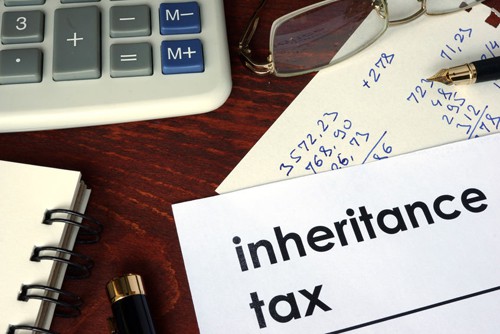Inheritance Tax in Florida: Full Explanation
Q) Does Florida have an inheritance tax?
A) The short answer for those who are inheriting a property in Florida is no, there is no inheritance tax in Florida.
However, when people ask this question they also have to understand if they will be liable for federal estate tax. Inheritance tax and estate tax are often used interchangeably but they are different. Inheritance tax is only collected at the state level by the beneficiary and estate tax is collected by the federal government before an asset is dispersed to the beneficiary. There is a national tax exemption for estate tax for up to $11.4 million from one decedent and $22.8 million if the decedent was married.

Given the fact that very few of us will inherit a property that is worth over $11.4 million, you can probably say that a beneficiary living in Orlando, Florida will probably not owe any estate tax. But understanding the concept of estate tax could help you with a critical question that many beneficiaries ask.
Q) If a decedent purchases a property for the benefit of a child, would there be a gift tax to be paid by either the parent or the child?
A) In most cases the answer is no. For the tax year that the parent bought the property he would fill out a Form 709 but no tax would be paid if the property was worth under $11.4 million ($22.8 million if a spouse exists). For a property value above these limits the estate would pay around 34% tax of the amount that supersedes the limit.
This answer goes against what people expect. They believe that since there is a $15,000 gift tax exemption that any property valued above this which a parent purchases for a child will be taxed.
With these key concepts explained and behind us now, we can talk about the fact that you as the beneficiary are probably not going to inherit a property that has already officially been earmarked for you at the time of purchase. You will probably inherit a property that was under your parent’s ownership at the time of death. Even in this situation, there will be no estate tax paid at the federal level if it is valued under $11.4 million (from a single parent) at the time of the decedent’s death. And for someone living in Florida there will be no inheritance tax.
The only thing you need to know about this is a small transfer tax that you’ll be paying during the probate process. Also, if the value of the property goes up between the date of the decedent’s death and the sale of the property, the difference will be taxed.
Exceptions where property tax is paid
It’s interesting that despite the mounting debt of the US, the forgiving rules concerning estate and inheritance tax have become law only in the last 26 years. To understand the loss that Americans used to incur when inheriting a property, just look at how foreign nationals are treated. For example if a non-citizen of the US owns property in Orlando, Florida the beneficiaries will probably have to pay a steep state inheritance tax. Let’s say that the decedent was a US citizen but his wife and children are not. They will be shocked to learn that they will be paying inheritance tax because of their foreign nationality.
Beneficiaries who live in Florida but are receiving a property in another state that collects inheritance tax can probably expect to pay that tax. These states that you should be mindful of are Maryland, Kentucky, Iowa, New Jersey, Nebraska and Pennsylvania. Out of these 6 states, 2 actually assess estate tax on top of inheritance tax. These states are Maryland and New Jersey.
Inheriting an investment property in Florida
Let’s say that you are a Floridian living in Orlando and are inheriting a $600,000 investment property from your father. You should know that though you won’t be paying any inheritance or estate tax, any rent that was collected from the time your father died to when you officially inherited the property will be taxed.
This fact puts strain on you as the beneficiary throughout the probate process which may be drawn out for many months. Fortunately, if you know this will be happening you can plan to sell the property even before the probate process is finished. Knowledge of tax law is power in the world of real estate.
Conclusion
This article covers the basic question of whether a Florida resident owes inheritance tax or estate tax on property and the answer is for the most part “no”. However, you may fall into classes of exception that would make the property taxable.
A) Being a foreign national
B) Inheriting from a foreign national
C) Inheriting a property located in a tax assessing state
D) Inheriting a property with a high market value
E) Inheriting a property that earns money